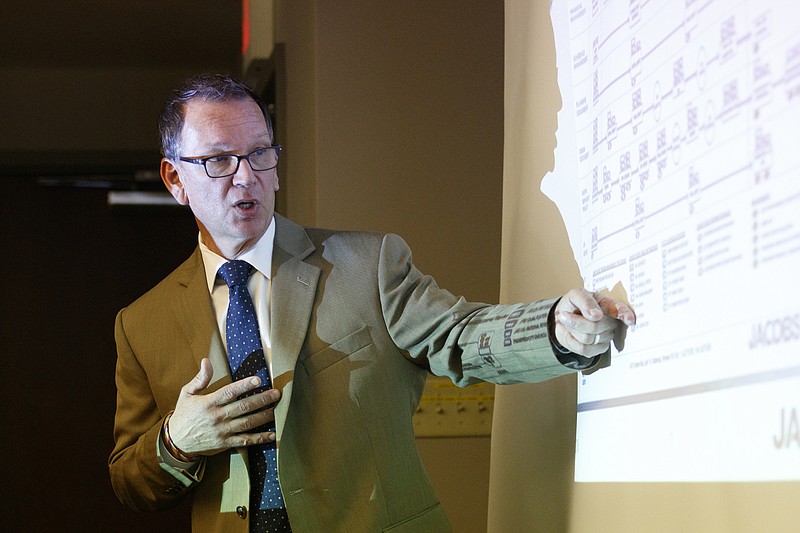The Chattanooga City Council wants to know if the city is getting what it is paying for with a comprehensive $250 million program intended to reduce - or where possible, eliminate - raw sewage overflows into the Tennessee River.
Since the city signed a 2013 agreement with the U.S. Environmental Protection Agency, Chattanooga Public Works has launched a 17-year, two-phase plan to replace and repair wastewater lines and increase the capacity of sewage facilities. A key element is preventing overflows by reducing stormwater infiltration into the sewer network through damaged pipes and manholes.
The city has borrowed $66.8 million through the Tennessee Department of Environment and Conservation and will discuss taking out another $42.5 million TDEC loan on Tuesday.
After a briefing recently by Jacobs Engineering Group, the consultants overseeing the wastewater overhaul, council members expressed concerns about the program's accountability and end results.
"We'd like to know, with all these millions of dollars, is it going in the right direction?" council Chairwoman Carol Berz said. "When all this money is spent, when all of this happens, what does that mean?"
Engineering consultant Michael Marino told council members the program's first phase is projected to achieve necessary reductions in sewage overflows by the mid-2020 implementation deadline. Ending overflows will prevent the need for something "more drastic," such as building and maintaining large and expensive storage facilities, Marino said.
"The EPA has said you must solve this problem," Marino said. "You cannot put wastewater into the Tennessee River."
There are 56 projects in the program's first phase. So far, seven have been completed, 15 are being designed, six are under bid and 10 are under construction, said Marino.
Councilman Chip Henderson asked how failures are detected and who is responsible for them.
As part of the engineering program, Jacobs has a process to "ferret out" design flaws, Marino said.
He said a bad design is the engineer's fault, while the contractor is responsible if corners are cut during implementation.
Henderson said he was concerned about guarantees associated with using cured in-place piping, which calls for installing resin-soaked woolen sleeves within damaged pipes.
Engineer Chris Palmer said that kind of work has a warranty of five years and a lifespan of 50 years. If failures occur, they happen much sooner, he said.
"Generally, you'll see it [a failure] within the first year," Palmer said.
The Chattanooga wastewater system encompasses more than 1,260 miles of sewer line and 70 pump stations. It serves about 170,000 customers.
Contact staff writer Paul Leach at 423-757-6481 or pleach@timesfreepress.com.
